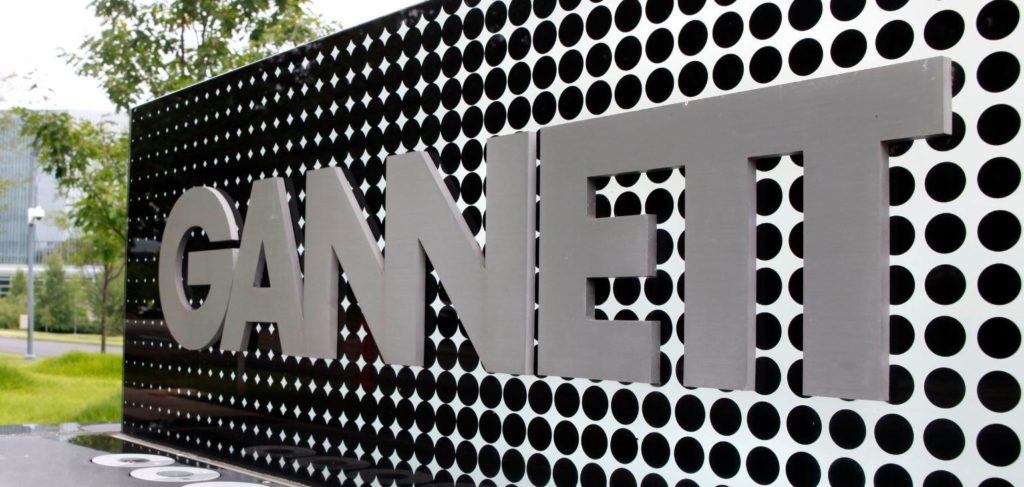Please Buy Our Paper, Anyone But Wall Streeters

When is the last time you read, or even came across, a copy of a local newspaper? Local journalism is dying in front of us, and Wall Street vultures are watching.
When is the last time you read, or even came across, a copy of a local newspaper?
According to a study by the University of North Carolina, more than 2,100 U.S. newspapers have closed since 2004, representing one in four of all papers in the country. Also gone with these prints, were half of all newspaper jobs.
 Those struggling to survive are being scooped up by Wall Street. In August, 2019, GateHouse Media, the largest owner of US newspapers by titles, and Gannett, the largest by circulation, reached a deal to merge and rebrand under Gannett.
Those struggling to survive are being scooped up by Wall Street. In August, 2019, GateHouse Media, the largest owner of US newspapers by titles, and Gannett, the largest by circulation, reached a deal to merge and rebrand under Gannett.
The real buyers of these distressed media assets are Fortress Investment Group and Apollo Global Management – two prestigious names to Harvard Business School graduates, and two chilling names to journalists. And the other heavy puncher in the industry – MediaNews Group – is owned by Alden Global Capital, a hedge fund notorious for its aggressive cost cutting and capitalistic approaches.
While Gannett’s debt holders will probably emerge victorious at a steep 11.5% annual interest rate, the organization’s original mission – to inform and engage communities, and make them stronger – has long left the building with their hundreds of laid-off journalists. Local newspapers are hit particularly hard in the wash. The Knoxville News Sentinel readers will no longer be able to follow the University of Tennessee’s women’s basketball, and the Arizona Republic readers will no longer see Pulitzer Prize-winning cartoons.
How did this happen?
How did local journalism become such a salient victim of the digital age?
The traditional local newspapers relied on print subscribers and advertising to generate revenue. Few Americans today hold print subscriptions, but few local newspapers have sufficient resolve and resources to attract paying digital subscribers. Meanwhile, advertising dollars are shifting into the pockets of Facebook and Google, who took a combined 58% of all U.S. digital ad spending in 2019, according to eMarketer. More importantly, Facebook and Google have become the dominant aggregators and distributors of news content, while not being subject to the regulations imposed on a news publisher.
 No wonder the University of Tennessee women’s basketball reporter of 30 years would lose his job. The 24-year-old CS major product manager at Facebook is designing a black box of algorithm, to distribute local news content optimizing for not factfulness or newsworthiness, but click conversion and monetization value.
No wonder the University of Tennessee women’s basketball reporter of 30 years would lose his job. The 24-year-old CS major product manager at Facebook is designing a black box of algorithm, to distribute local news content optimizing for not factfulness or newsworthiness, but click conversion and monetization value.
The HBS-educated capitalist may ask: isn’t traditional local journalism just not as competitive? Don’t clicks and ad revenues speak for market’s true preferences?
Except, newspaper publishers have an additional civic duty that, if left entirely to the profit-seeking PE overlords, will be labeled as a cost item and cut with their newsrooms. True journalism is expensive not because journalists are overpaid, but because even the most basic journalistic standards are higher than any found at Facebook.
So what if local journalism died?
The costs of replacing local journalism with algorithm-generated un-newsworthy content are disastrous. Misinformation and fake news spread much faster because their sensational, made-up headlines hit right at the primal side of our brains. An equally important but more subtle cost is the deepening national polarization. Local newspapers cover local communities and gauge local sentiments for their own residents and leaders, but also inform larger national newspapers and networks. But in recent years, this network clearly stopped working. Many of us woke up on that fateful November day in 2016 to a country so divided that we barely recognized. Even the world-renowned New York Times, reporting from their steel-and-glass Manhattan tower, had missed an entire half of the country for years.
Who can save local journalism?
Certainly not today’s Gannett. Some options hold promise:
- Self help. Different local media agencies – newspapers, radio stations, TV networks, non-profit news groups – should increase collaboration and partnerships. It may be time to consider sharing news tips, reporting resources, and even office spaces.
- Find allies. Local newspapers should identify non media players who are also interested in fighting fake news and misinformation. Academic institutions, libraries, certain private sector companies may all become potential allies.
- Cry louder. Local newspapers should form alliances to attract more national attention to this serious issue. Lobby for government regulations, subsidies and exemptions, and private donations.
As for Gannett, the journalists and editors may have to brace for many more rounds of layoffs. Or, they may decry their capitalist owners like their colleagues at the Chicago Tribune (owned by Alden Global Capital) did last week: a plain and powerful public plea via the New York Times, “Please Buy Our Paper.”

Notes:
- Worried Reporters Make a Plea: Please Buy Our Paper, The New York Times. https://www.nytimes.com/2020/01/26/business/media/newspaper-reporters-hedge-funds.html
- A Paradox at the Heart of the Newspaper Crisis, The New York Times. https://www.nytimes.com/2019/08/01/business/media/news-deserts-media-newspapers.html?action=click&module=RelatedCoverage&pgtype=Article®ion=Footer
- Rebuilding local journalism as an essential democratic force, The Pulitzer Prizes. https://www.pulitzer.org/article/rebuilding-local-journalism-essential-democratic-force
- Local journalism in crisis: Why America must revive its local newsrooms, The Brookings Institution. https://www.brookings.edu/research/local-journalism-in-crisis-why-america-must-revive-its-local-newsrooms/
- Gannett lays off journalists across the country, Poynter. https://www.poynter.org/business-work/2019/gannett-lays-off-journalists-across-the-country/
- As Gannett merger nears completion, union claims ‘journalism will suffer’ under deal, The Washington Post. https://www.washingtonpost.com/business/2019/11/08/gannett-merger-nears-completion-union-claims-deal-threatens-journalism/
Photo credits:
- The New York Times
- Getty Images
- Bloomberg




Thank you for sharing. It’s quite sad to see this industry slowly dying because of digitization. I think the decline of local journalism is inevitable, but the options you listed out are promising. I like the first option the best. The local content players have to join forces, through partnership or M&A activities, to deliver high-quality, real-time content to the local community. I think a consolidation is the best route as this can help local media agencies to achieve cost synergies (i.e. sharing resources, decrease number of headcounts, etc.) to become more financially sustainable in the long run, especially when it is competing with asset-light internet players.
Very interesting read! I think another very important point is that local news probably have a disproportionate impact on many people’s broader opinions – i.e. something happening at national scale might impact an individual’s perspective on a political party or an individual politician, but if the factory next door closes its doors and the local news reporting is either biased or straight up incorrect, it can have a much more drastic impact on that individual. Hence, the stakes are very high to keep high quality local journalism alive!